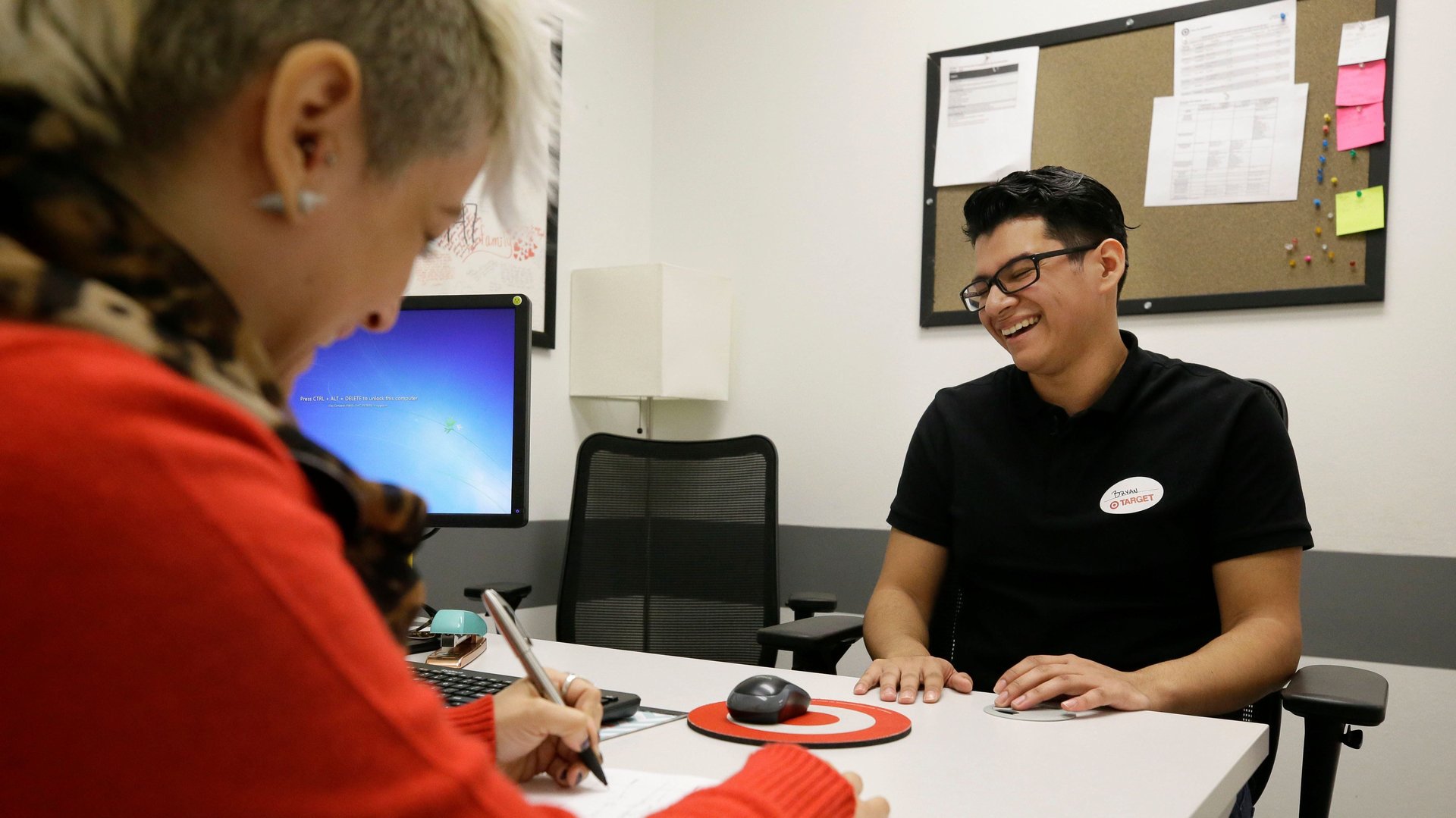Yale study shows class bias creeps into the hiring process in just a matter of seconds
It’s well known that biases often creep into the hiring process, from preferring a candidate who went to a certain university to guessing someone’s interest in a role based solely on their looks. Now there’s a study that suggests job candidates are judged on their socioeconomic status within seconds after they start to speak.


It’s well known that biases often creep into the hiring process, from preferring a candidate who went to a certain university to guessing someone’s interest in a role based solely on their looks. Now there’s a study that suggests job candidates are judged on their socioeconomic status within seconds after they start to speak.
The study, to be published in the Proceedings of the National Academy of Sciences, found that people in the US are remarkably skilled at determining one another’s social class (measured by income, education, and occupation status) based on brief speech patterns.
How long does it take? Only 15 to 20 seconds and about seven words to have an above-chance accuracy and perception of a person’s social status, according to Michael Kraus, the lead author of the study and assistant professor of organizational behavior at the Yale School of Management.
The researchers determined that such snap perceptions of status will skew hiring managers’ assessments of a person’s competence, fit, and appropriate compensation levels in favor of candidates from higher social classes—and bias them against those who are pursuing economic advancement.
Bias across the board
The researchers based their conclusions on five studies, with the first four examining the extent to which people accurately perceive social class based on a few seconds of speech. In the first study, the researchers asked participants to answer yes or no to the question: “Is this person a college graduate/woman/young/white?” With just brief speech cues, the participants showed an above-chance accuracy in correctly perceiving all four categories.
In the second and third studies, the researchers confirmed that when we hear speech patterns conforming to our subjective standards for English as well as digital standards—e.g., voice standards set by tech products like Amazon Alexa or Google Assistant—we associate it with both actual and perceived higher social class.
In the fourth study, the researchers had participants either listen to or read a 90-second transcript of people describing themselves. They found that pronunciation cues in people’s speech communicate social status more accurately than the content of their speech.
Finally, the researchers examined how perceptions based on just a few seconds of speech might influence hiring decisions. They recruited 20 prospective job candidates of varied socioeconomic backgrounds, in Yale’s backyard of New Haven, Connecticut, to interview for an entry-level lab manager position at the university. Prior to the formal job interview, each candidate recorded a conversation in which they were asked to briefly describe themselves. Then, a sample of 274 people with hiring experience either listened to the audio or read transcripts of the recordings and—without access to the formal interviews or the candidates’ resumes—were asked to make judgments about each candidate’s professional qualities, assign them a starting salary and signing bonus, and assess their social class.
The researchers found that hiring managers were more likely to judge applicants from higher social classes as being more competent for the job than those with lower class status. They also recommended higher starting salaries and signing bonuses for those perceived to have greater social status.
The problem with hiring for culture fit
The significance of the researchers’ findings is not only the confirmation that hiring managers are likely overlooking possibly great candidates, but that they also are likely helping to further income inequality. The American dream is regularly marketed with the premise that upward mobility is achieved through hard work, but there is probably a huge disconnect in the US between having those beliefs and realizing them, says Michael Kraus, assistant professor of organizational behavior at the Yale School of Management.
The study, though, was limited to the perceptions formed at the very beginning of the hiring process—akin to the informal chit-chat that often takes place at the start of a job interview, before hiring managers start to ask about the person’s qualifications. That begs the question of how their perceptions might change over time.
While candidates from lower-status backgrounds might overcome the hiring manager’s social-class assessments or biases over the course of the interview, those perceptions could make the difference in getting hired or not if they are being compared to people of higher socioeconomic status who have similar qualifications, says Kraus. The hiring manager is probably going to go with the candidate who made a better first impression, he says.
It’s not easy to undo bias, especially when you’re not aware of its existence. Plenty of executives openly talk about hiring people for “cultural fit,” without realizing they’re perpetuating bias. “It’s going to seem like the person just has this vibe, right? But it might be class,” Kraus says.
One alternative is making sure that you’re not just hiring those within your networks, and that you’re thinking about how your product or service might fill the needs of a broad demographic. Says Kraus, “By switching your priorities, you don’t necessarily have to worry as much about these biases because you can say, well, when I make inferences about a person’s upbringing, that might be a point of strength.”